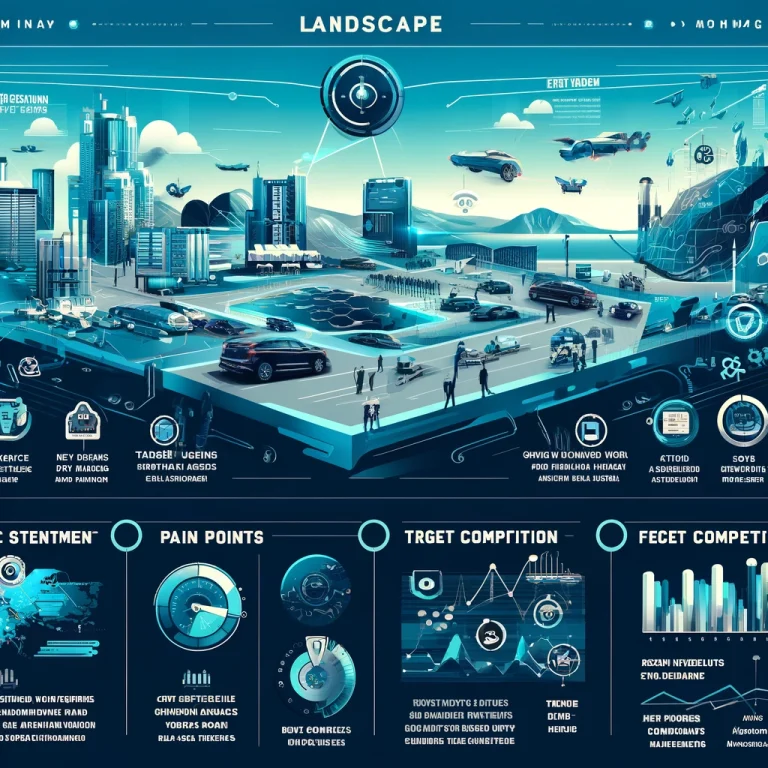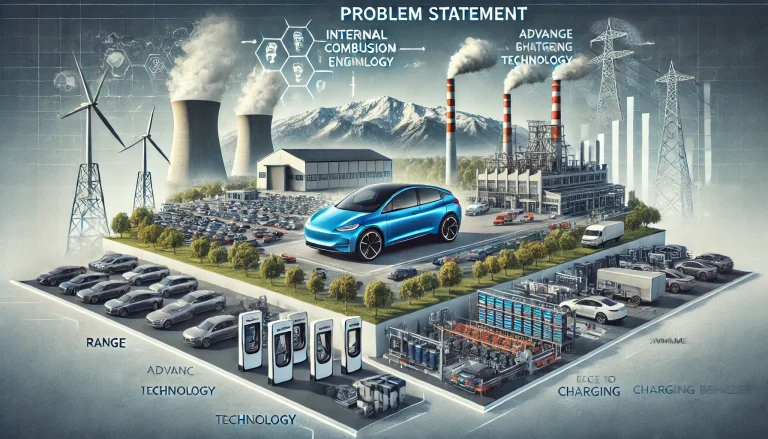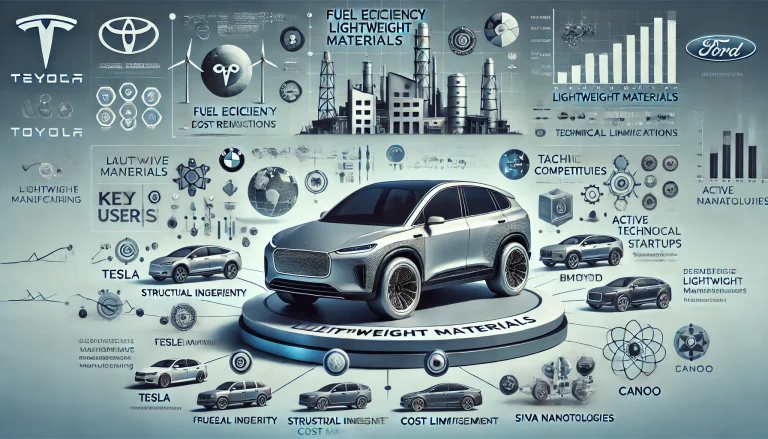Problem Statement Elaboration
The automotive industry depends on intricate global supply chains that are highly susceptible to various disruptions, such as natural disasters, geopolitical conflicts, and pandemics. These disruptions can significantly impact the availability of essential components, leading to production halts and an inability to meet consumer demand. To address these vulnerabilities, it is crucial to develop supply chains that are both resilient and flexible. This entails implementing strategies that can quickly adapt to unforeseen events, ensuring continuity in production processes, and maintaining the supply of necessary materials and components.
Identify Pain Points (Detailed)
Target Users and Stakeholders
Target Users:
- User: Automotive manufacturers
- Age group: 30-50 years
- Gender: M/F
- Usage Pattern: 2-3 hours daily, primarily for managing supply chain operations and ensuring smooth production processes.
- Benefit: Enhanced supply chain resilience, reduced production delays, and improved ability to meet consumer demand.
Stakeholders and Roles:
- Automotive Manufacturers: Oversee production and manage supplier relationships.
- Suppliers: Provide essential components and materials.
- Logistics Providers: Handle transportation and delivery of parts.
- Customers: End-users of the final automotive products.
- Regulatory Bodies: Ensure compliance with industry regulations.
- Investors: Provide financial support for supply chain improvements.
Pain Points
- Supply Chain Disruptions: Frequent interruptions due to natural disasters and geopolitical issues.
- Lack of Visibility: Difficulty in tracking components across the supply chain.
- Dependence on Single Suppliers: Risk of production halts if a single supplier faces issues.
- Logistics Challenges: Delays and inefficiencies in transportation and delivery.
- Inventory Management: Inadequate inventory levels leading to either shortages or excess.
- Compliance and Regulation: Navigating different regulatory environments across regions.
- Cost Management: Rising costs of raw materials and transportation.
- Technological Integration: Difficulty in integrating new technologies across the supply chain.
- Quality Control: Ensuring consistent quality across all suppliers.
- Pandemic Impact: Disruptions caused by global health crises affecting workforce and production.

Future Vision
To ensure resilience and flexibility in the automotive supply chain, the future vision focuses on building a robust network that can withstand disruptions and adapt to changing circumstances. This involves:
- Diversifying suppliers to reduce dependency on single sources.
- Enhancing supply chain visibility through advanced tracking technologies.
- Implementing flexible logistics solutions to manage transportation challenges.
- Leveraging predictive analytics for better inventory management.
- Streamlining regulatory compliance with automated systems.
- Adopting sustainable practices to mitigate environmental impact.
- Investing in technology integration for seamless operations.
- Establishing contingency plans for various disruption scenarios.
Use Cases
- Diversified Supplier Network: Automakers sourcing components from multiple suppliers across different regions to mitigate risks.
- Advanced Tracking Systems: Using IoT and blockchain technology for real-time visibility and tracking of parts and materials.
- Flexible Logistics Solutions: Implementing agile logistics strategies to adapt to changing transportation conditions.
- Predictive Inventory Management: Utilizing AI to forecast demand and manage inventory levels effectively.
- Automated Compliance Systems: Streamlining regulatory compliance with automated tools to ensure adherence to local and international laws.
- Sustainable Practices: Integrating eco-friendly practices to reduce carbon footprint and enhance sustainability.
- Technology Integration: Seamlessly incorporating new technologies to improve supply chain efficiency.
- Contingency Planning: Developing and implementing comprehensive contingency plans for potential disruptions.
- Collaborative Platforms: Creating platforms for better communication and collaboration among stakeholders.
- Quality Control Mechanisms: Establishing stringent quality control measures to maintain product standards.
Target Users and Stakeholders
Target Users
User: Automotive manufacturers Age group: 30-50 years Gender: M/F Usage Pattern: 2-3 hours daily, primarily for managing supply chain operations and ensuring smooth production processes. Benefit: Enhanced supply chain resilience, reduced production delays, and improved ability to meet consumer demand.
Stakeholders and Roles
- Automotive Manufacturers: Oversee production and manage supplier relationships.
- Suppliers: Provide essential components and materials.
- Logistics Providers: Handle transportation and delivery of parts.
- Customers: End-users of the final automotive products.
- Regulatory Bodies: Ensure compliance with industry regulations.
- Investors: Provide financial support for supply chain improvements.

Key Competition
- Bosch: Leading provider of automotive technology and supply chain solutions.
- Continental: Specializes in automotive components and integrated supply chain services.
- DHL Supply Chain: Offers comprehensive logistics and supply chain management services.
- Magna International: Provides diverse automotive parts and supply chain solutions.
- ZF Friedrichshafen: Known for automotive technology and efficient supply chain operations.
Products/Services
- Supply Chain Management Software: Tools for managing and optimizing supply chain operations.
- Real-Time Tracking Systems: IoT and blockchain-based systems for tracking parts and materials.
- Predictive Analytics Tools: AI-driven solutions for demand forecasting and inventory management.
- Automated Compliance Tools: Systems for ensuring regulatory compliance.
- Sustainable Supply Chain Solutions: Eco-friendly practices and technologies.
- Flexible Logistics Services: Agile logistics strategies for adapting to transportation challenges.
- Quality Control Systems: Mechanisms for maintaining consistent product quality.
- Collaborative Platforms: Tools for enhancing communication and collaboration among stakeholders.
- Contingency Planning Services: Solutions for developing and implementing contingency plans.
- Technology Integration Services: Assistance with incorporating new technologies into supply chain operations.
Active Startups
- ShipChain: Blockchain-based logistics and supply chain management.
- ClearMetal: AI-driven predictive logistics platform.
- FourKites: Real-time supply chain visibility solutions.
- Project44: Advanced tracking and logistics management.
- Elementum: Supply chain orchestration software.
- Fictiv: Digital manufacturing ecosystem.
- Flexport: Freight forwarding and supply chain logistics.
- Resilinc: Supply chain risk management solutions.
- Llamasoft: AI-powered supply chain analytics. 10
Ongoing Work in Related Areas
- Blockchain for Supply Chain Transparency: Enhancing visibility and traceability.
- AI and Machine Learning: Predictive analytics for better demand forecasting.
- IoT Integration: Real-time tracking of parts and materials.
- Sustainable Practices: Reducing environmental impact through eco-friendly solutions.
- Autonomous Delivery Vehicles: Improving logistics efficiency.
- 3D Printing: On-demand manufacturing of automotive components.
- Digital Twins: Simulating supply chain operations for better decision-making.
- Robotics and Automation: Streamlining production processes.
- Collaborative Platforms: Enhancing stakeholder communication.
- Advanced Quality Control: Ensuring consistent product standards.
Recent Investments
- Bosch: Invested $1 billion in AI and IoT technologies (2023).
- ZF Friedrichshafen: Invested $700 million in autonomous driving and supply chain automation (2022).
- Continental: Invested $500 million in sustainable supply chain solutions (2023).
- DHL Supply Chain: Invested $600 million in real-time tracking systems (2022).
- Magna International: Invested $450 million in predictive analytics tools (2023).
Market Maturity
The market for automotive supply chain solutions is rapidly maturing, driven by increasing demand for resilience and flexibility. Major players are investing heavily in advanced technologies like AI, IoT, and blockchain to enhance supply chain visibility and efficiency. Startups are also emerging with innovative solutions, contributing to the dynamic and evolving landscape. As regulatory requirements and customer expectations rise, the industry is poised for significant growth and transformation.
Summary
Ensuring resilient and flexible supply chains is crucial for the automotive industry to navigate disruptions such as natural disasters, geopolitical tensions, and pandemics. By diversifying suppliers, enhancing visibility, and leveraging advanced technologies like AI, IoT, and blockchain, the industry can mitigate risks and maintain production continuity. Key stakeholders include automotive manufacturers, suppliers, logistics providers, customers, regulatory bodies, and investors. Current competition involves major companies like Bosch, Continental, and DHL Supply Chain, alongside innovative startups like ShipChain and ClearMetal. Significant investments are being made in AI, IoT, and sustainable practices, highlighting the market’s rapid maturation. The future vision focuses on creating a robust, adaptable supply chain network to meet evolving demands and ensure long-term resilience


